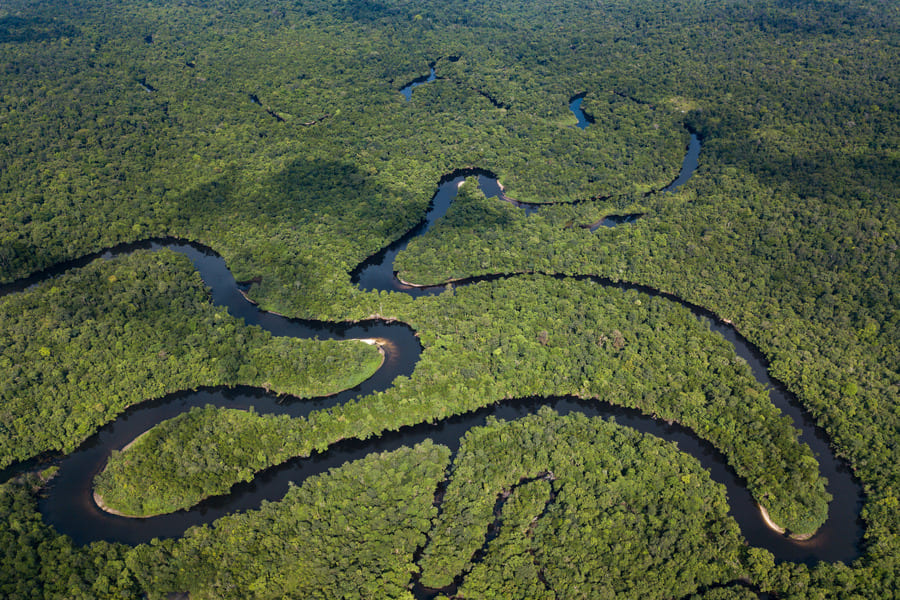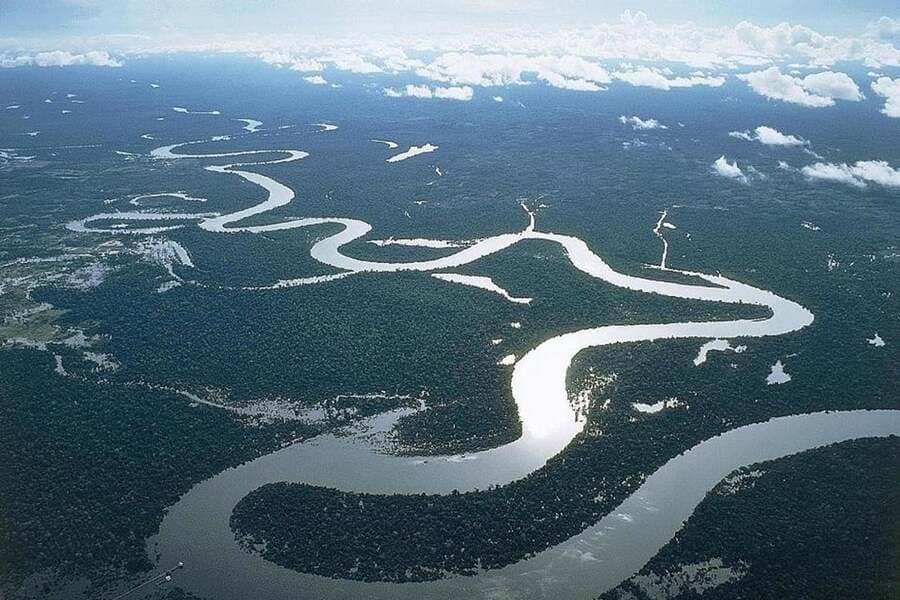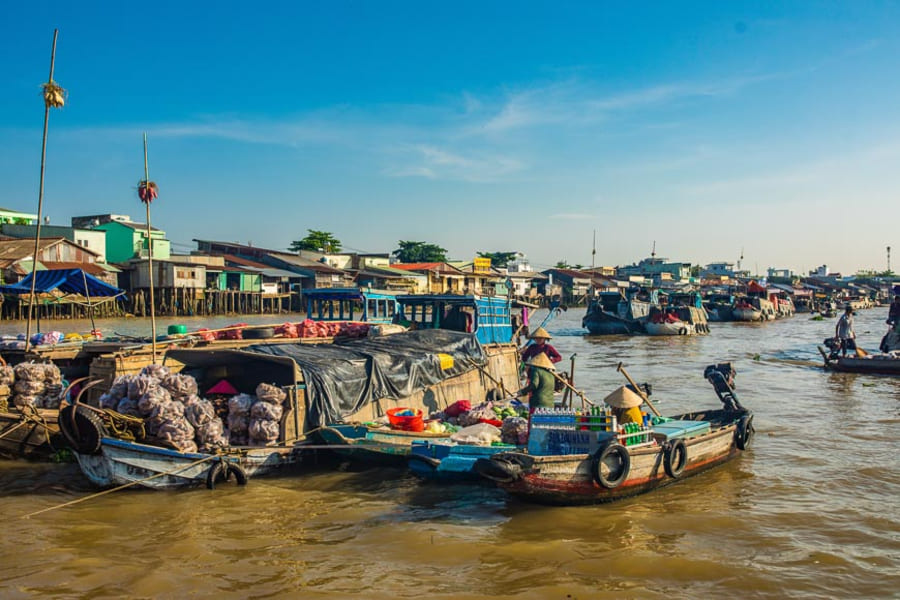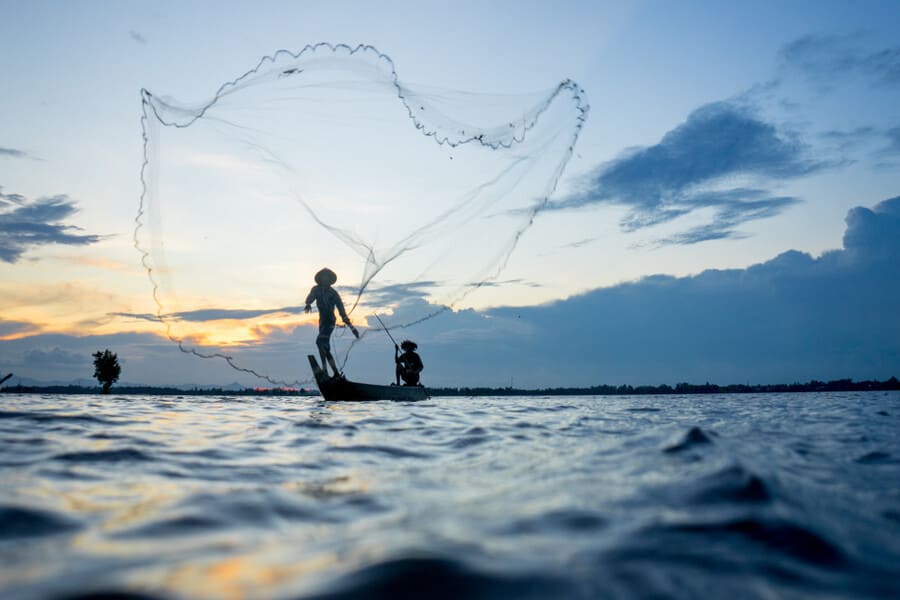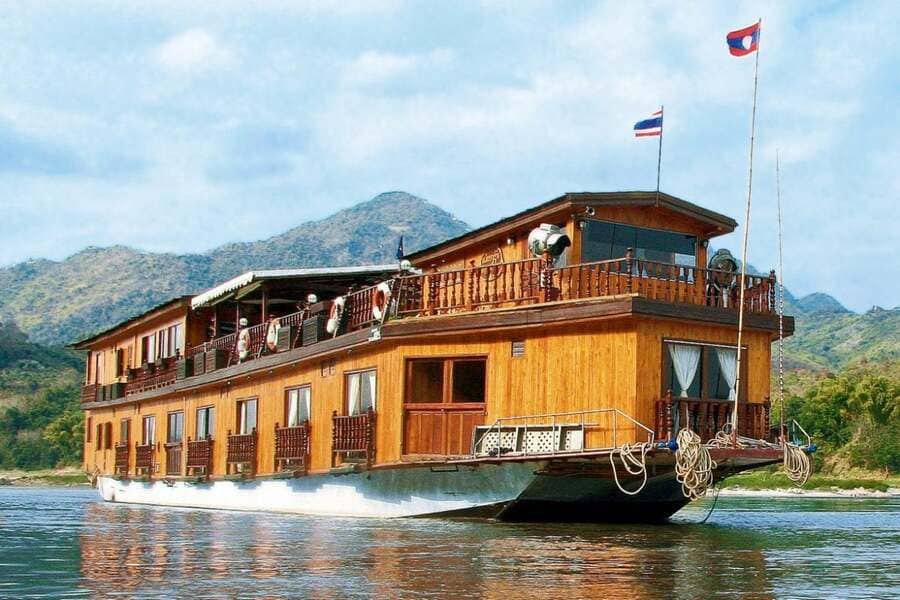Embarking on cambodia tours unveils a journey through a land intricately intertwined with the majestic flow of the Mekong River. As one of the longest rivers in the world, the Mekong holds profound historical significance, shaping the narrative of Cambodia's civilization, culture, and livelihoods for millennia. In exploring the historical tapestry woven along its banks, one discovers a chronicle of ancient empires, vibrant trade routes, and enduring spiritual traditions that have thrived in harmony with the ebb and flow of this mighty river.
Contents
Geography of the Mekong River
The Mekong River, originating from the Tibetan Plateau in China, meanders through six countries, including Cambodia, before emptying into the South China Sea. As one of the longest rivers in the world, its geography encompasses diverse landscapes ranging from towering mountain ranges to expansive floodplains.
In Cambodia, the Mekong River serves as a lifeline, shaping the country's geography with its fertile riverbanks, lush wetlands, and verdant rice paddies. Along its course, the river nourishes ecosystems teeming with biodiversity and sustains vital agricultural and fisheries industries.
The Tonle Sap River, a major tributary of the Mekong, adds to Cambodia's geographical richness, especially during the annual monsoon season when it reverses its flow, flooding the surrounding plains and replenishing the land with nutrient-rich sediment.
The Mekong River's geography is not only a source of natural abundance but also a cornerstone of Cambodian culture, history, and identity, embodying the enduring connection between the people and their land.
Historical significance of the Mekong River
The historical significance of the Mekong River in Cambodia is profound, shaping the country's civilization, economy, and cultural identity over millennia. As one of the longest rivers in the world, the Mekong has been a central artery of life, providing sustenance, transportation, and fertile lands for settlement along its banks.
In terms of civilization, ancient Khmer societies, including the iconic Angkor Empire, thrived along the Mekong and its tributaries, harnessing the river's waters for irrigation and agriculture. The Mekong facilitated trade and cultural exchange, connecting Cambodia to neighboring regions and beyond.
Economically, the river continues to play a crucial role, supporting vital industries such as agriculture, fisheries, and transportation. The fertile floodplains of the Mekong Delta in Cambodia yield bountiful harvests of rice, while its waters teem with diverse fish species, sustaining local livelihoods and culinary traditions.
Culturally, the Mekong River is woven into the fabric of Cambodian identity, revered as a sacred entity and celebrated in folklore, art, and religious rituals. Its annual rhythms of flooding and receding shape the rhythm of life for communities along its banks, fostering a deep sense of connection and resilience.
In essence, the historical significance of the Mekong River in Cambodia transcends mere geography, embodying the enduring spirit of a people whose lives have been intertwined with the ebb and flow of this mighty river for centuries.
Cultural and Spiritual Significance of Mekong River
The Mekong River holds profound cultural and spiritual significance for the people of Cambodia, shaping their beliefs, traditions, and way of life. Revered as a sacred entity, the Mekong is deeply ingrained in Cambodian culture, serving as a source of inspiration, sustenance, and spiritual connection. Throughout history, the river has been venerated in folklore, art, and religious rituals, symbolizing the cyclical rhythms of life and the interconnectedness of all beings.
In Cambodian mythology, the Mekong River is often associated with tales of creation, transformation, and divine intervention. Ancient legends recount the exploits of mythical creatures and gods who shaped the landscape and navigated the river's currents, imparting lessons of wisdom, courage, and resilience to future generations. These stories serve as a reminder of the river's role as a timeless source of inspiration and guidance for the Cambodian people.
Spiritually, the Mekong River is revered as a sacred lifeline, embodying the divine forces of nature and the cycle of birth, death, and rebirth. Rituals and ceremonies are conducted along its banks to honor the river and seek blessings for abundance, prosperity, and protection. During festivals such as Bon Om Touk (Water Festival) and Khmer New Year, Cambodians gather to pay homage to the Mekong through colorful processions, boat races, and offerings to the river spirits.
Moreover, the Mekong River serves as a focal point for community gatherings, cultural celebrations, and social cohesion. Villages and towns along its banks are united by a shared reverence for the river, fostering a sense of belonging and collective identity among residents. Traditional songs, dances, and ceremonies passed down through generations reflect the intimate relationship between the Cambodian people and their natural surroundings, reinforcing the cultural bonds forged by the Mekong's waters.
Economic significance of the Mekong River
The Mekong River holds immense economic significance for Cambodia, playing a pivotal role in driving the country's economy and supporting the livelihoods of millions of people. As one of the longest rivers in the world, the Mekong serves as a vital artery of commerce, transportation, and natural resources, contributing to various sectors of the Cambodian economy.
Agriculture:
The fertile floodplains and delta regions along the Mekong River provide ideal conditions for agriculture, particularly rice cultivation. Cambodia's rice paddies yield abundant harvests, making the country one of the world's major rice exporters. The Mekong's waters are essential for irrigation, replenishing soil nutrients, and sustaining agricultural productivity throughout the year.
Fisheries:
The Mekong River supports one of the most diverse and productive freshwater fisheries in the world. Cambodian fishermen rely on the river's abundant fish stocks for their livelihoods and as a critical source of protein for the population. The annual Tonle Sap River flood pulse, triggered by the Mekong's rising waters, creates optimal breeding conditions for fish, enhancing the productivity of Cambodia's inland fisheries.
Hydropower:
The Mekong River has significant hydropower potential, with several dams and hydroelectric projects planned or already operational along its course. Hydropower development along the Mekong tributaries in Cambodia generates electricity for domestic consumption and export, contributing to the country's energy security and economic development.
Transportation:
The Mekong River serves as a key transportation artery, facilitating the movement of goods and people within Cambodia and across neighboring countries. River transport is an efficient and cost-effective mode of cargo transport, particularly for bulk commodities such as rice, timber, and construction materials. Ports and riverine infrastructure along the Mekong support trade and commerce, connecting Cambodia to regional markets and beyond.
Tourism:
The Mekong River and its surrounding landscapes attract tourists from around the world, contributing to Cambodia's tourism industry. River cruises, eco-tours, and cultural experiences along the Mekong offer visitors a unique opportunity to explore Cambodia's natural beauty, cultural heritage, and vibrant communities, generating revenue and employment opportunities for local residents.


